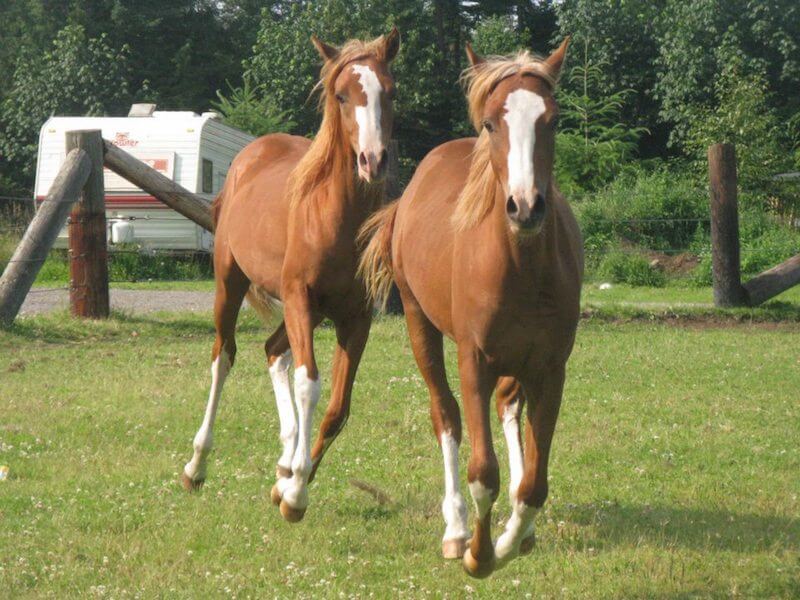The Importance of Copper
by Eleanor Blazer, www.horsecourses.online
“See a penny, pick it up…and put it in a bucket?”
Adding pennies to a horse’s water to increase copper intake is without merit; it doesn’t work. Pennies minted after 1982 are only 2.5 percent copper. You may want to add copper, but do you really need to?
Copper (Cu) is a native element mineral, which means it occurs naturally – it can be recognized in its pure form. As a metal it has been used as jewelry, weapons, cooking utensils, currency and decorative art. Copper has been used to make religious items, to plate ships, on roofs, to conduct electricity, as a wood preservative and as water pipe. There is evidence ancient medical practitioners used it for sterilization, primitive surgery tools and as “tonic” for various illnesses and disease.
Copper is also an essential nutrient needed by living organisms. Essential nutrients must be provided by diet. The body cannot manufacture copper internally. Development, repair, and maintenance of tendons, ligaments, joints and other connective tissues require copper. It is also important to brain function, the manufacturing of red blood cells, reproduction, pigmentation of the hair coat, and supporting antioxidant activity. Copper actually is an antioxidant. Antioxidants neutralize free radicals before they can damage the horse’s body tissues. Free radicals are molecules that have been damaged by chemicals, drugs, or other impurities. These damaged molecules attack the healthy body tissues, which can cause infection and inflammation.
After reading about all the great things copper can do, horse owners may be tempted to provide supplemental copper. In most cases, this is not necessary. Copper deficiencies are rare in horses fed a balanced diet. Reputable feed manufacturers balance their products and insure copper levels meet or exceed the National Research Council’s recommendations. If a horse owner purchases a feed that is designed for the age and activity level of the horse, and follows the directions, copper requirements should be met. Supplementing the diet with copper can cause problems. High copper levels interfere with zinc and selenium absorption. However, if a horse is deficient in copper, symptoms can be joint problems in growing horses, uterine artery rupture in older broodmares, weakened aortic ring (heart), anemia and a lack of hair pigmentation.
Other than faded coat color and swollen joints in youngsters, there are few external signs to alert the horse owner of a copper deficiency. The most reliable method is analyzing the forage and factor in all feeds you are providing. An equine nutritionist can run the numbers, or you can take the online nutrition course at www.horsecoursesonline.com and do it yourself.
Testing the blood and hair may show signs of copper deficiency. Consult your veterinarian. If the horse is experiencing a copper deficiency, he is probably deficient in other nutrients. The young growing horse needs adequate, balanced amounts of calcium, phosphorus, zinc and other nutrients to maintain healthy joints. Broodmares and performance horses also require a balanced diet to support their activity level. Dr. Thomas Swerczek, D.V.M., Ph.D, University of Kentucky, recommends horse owners purchase feed and supplements from reputable companies. He’s found heavy metals, such as cadmium and molybdenum, in inferior products. These heavy metals interfere with the absorption of copper. The copper is there, but it can’t be utilized by the horse. Horse owners may want to test feeds and supplements for contaminants. Another reason to buy premium products is the usage of chelated minerals. Inorganic minerals are difficult for the digestive system to utilize. Chelating or attaching the mineral to a form of protein (amino acids) makes the mineral more available. Look for copper proteinate, copper lysine complex or copper amino acid chelate on the feed tag.
Save your pennies. Buy good quality feed, run a feed analysis and balance your horse’s diet.
For information about caring for horses take the online courses “Stable Management” and “Nutrition for Maximum Performance” taught by Eleanor Blazer. Go to www.horsecoursesonline.com for more information. Visit Eleanor’s web site at www.thewayofhorses.com.
Published October 2012 Issue

Eleanor Blazer was raised training and caring for horses. She learned to ride and care for the horses her family bought and sold. Many of these horses required improved nutrition when they arrived for training. Eleanor’s experience and research has benefited both horses and horse lovers in the field of equine nutrition. An equine nutrition consultant, based in Bulverde, Texas, she keeps busy doing equine nutrition consultations, conducting seminars, and speaking to youth groups about horse care and nutrition. Eleanor is the author of the syndicated column The Way of Horses. She has more than 20 years experience helping and being a mentor to those wanting to know how to provide the very best care and nutrition for our special friend – the horse.

